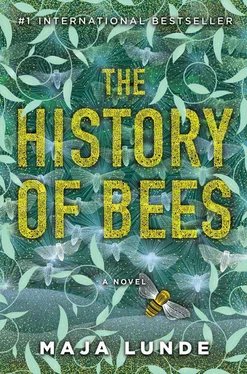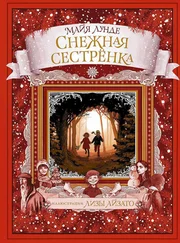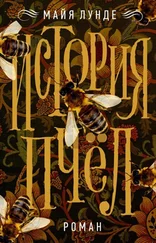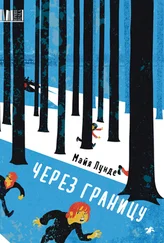I walked in and stood in front of them. The drawings. William Savage’s Standard Hive. Which, strictly speaking, had not been a standard for anybody except the Savage family. On a wall never touched by sunlight. In thick gold frames, shiny, without a speck of dust, Emma made sure of that. Black ink on yellowed paper. Figures. Measurements. Simple descriptions. Nothing more. But behind it was a heritage that my family had taken care of ever since the drawings were made in 1852. The Standard Hive was supposed to be William Savage’s great breakthrough; he was supposed to write himself into the history books. But he hadn’t taken the clever American Lorenzo Langstroth into account. Langstroth won, he developed the hive measurements that later became the standard. And nobody paid any attention to Savage. He was, quite simply, too late. That was maybe how it had to be when they sat there in distant parts of the world, each of them working on the same thing, but without a telephone, fax or email.
Behind every great inventor are always a dozen crestfallen guys who were just a bit too late. And Savage was one of them. So there were neither riches nor honor for him or his family.
His wife apparently managed to marry off most of the daughters. But it was worse for the son, Edmund. He was a good-for-nothing, a restless guy, a dandy, had acquired a taste for liquor at an early age and eventually disappeared into the gutters of London.
Only one of the daughters had never married. Charlotte, the brightest. The first lady of our family. She purchased a one-way ticket across the pond. Her trunk was up in the attic. It was the one she traveled with, she and a baby. Who the father was, nobody knew. The two of them and the trunk came to America all alone. In it she had everything she owned. It smelled stuffy, old. We didn’t use it for anything, but I didn’t have the heart to throw it out. Charlotte had put her entire life into the trunk, including her father’s drawings of the Standard Hive.
And that was where it started. Charlotte started beekeeping. Not full-time, on the side of her job as a teacher and headmistress. She only had three hives, but the three hives were all it took for the child, a little boy, to eventually take a shine to it, and he expanded with a few more hives. As did his son. And his son. And finally, my grandfather, who invested in full-scale operations and made a proper living out of it.
The damn drawings!
Suddenly I slammed my fist into the glass. It cracked; the pain radiated from my hand and through my entire body. The picture shook a bit, but hung there as before.
They had to come down. All three frames had to come down.
I lifted them off the hooks and took them with me out into the hallway. There I found my biggest shoes, heavy winter shoes with thick soles.
Shoes on, out into the yard.
I was about to put an end to them, land my boot on them, trample them hard, but at that moment I suddenly thought of Emma, of the noise it would make. I turned towards the bedroom window. The light wasn’t on up there. She was still asleep.
I carried the frames outside, opened the door to the barn and put them down on the floor.
Of course I could have just opened the frames from the back and teased out the pictures, but it was the sound of glass I wanted to hear. The crunching under my boot.
I stomped away, again and again, jumped on them. The glass broke, the frames shattered. Exactly as I had imagined.
Then I plucked out the drawings. I had hoped the broken glass would destroy them, but they were as good as new. The paper was surprisingly stiff and resilient. I laid them one on top of the other, six in all, in a pile. Stood there with them. I could burn them, put a match to them and let the lifework of my ancestors go up in flames. No.
I put the pile down on the worktable, studied it for a while. Terrible drawings. They hadn’t contributed to anything. Deserved a miserable fate. Not a fire, that was too dramatic, too dignified. Something else.
And then I knew.
I summoned my strength, took hold of the pile, my hands resisted, but I forced them. Then I started tearing. Long strips, I tried to make them as even as possible. But it was too thick trying to tear six all at once. I’d have to divide the pile in two. Three pages at a time. But that didn’t take long enough. I wanted to carry on for a long while. So I did one page at a time.
I liked the sound. It was as if the paper were screaming. Mercy. Mercy!
It felt better than good. It felt sensational, doing something—accomplishing something substantial. I could keep this up all night.
But finally I had to stop. There was no point tearing them up into too-small pieces, then they wouldn’t serve the purpose I had in mind.
I gathered up the strips and took them with me. Couldn’t be bothered to clean up the frames and the glass, I’d take care of it tomorrow. I just walked out into the night, across the yard and opened the back door.
Onto the porch and from there into the back hallway. There I opened the first door on the right and took two steps into the darkness. A gurgling sound informed me that as usual the flush valve was stuck. Probably needed to be replaced. I didn’t bother to turn on the light and check now. I just put the drawings, the paper, down on the floor. Ready to be used. Where they belonged. In the john.
We were sitting in an old electric car. Many cars like this were built in the 2020s, when solar electricity really took off. The time I visited the city with my parents, the streets were full of them, most of them old and decrepit. This car was better taken care of than most, built for fastidious customers, large, black and shiny. I had never seen this type of vehicle owned by a private person, nor used by people below a certain rank. The cars we had at home always belonged to the police or health care personnel, like the one that had come to pick up Wei-Wen. They were simple boxes of lightweight material, created to consume the least possible amount of electricity. This car was larger, more grand. Only rarely did a car like this visit our little city; it glided through the streets with tinted windows and we always wondered what they were doing in our little corner of the world.
It was the first time in my life I set foot inside such a beautiful vehicle. I put my hand on the imitation leather seat. It had once been smooth, but was now full of cracks. Because the car was old. The seats gave it away, the smell gave it away, the cleaning products were merely camouflage for the stench of old age that had settled into the fittings and the car body.
The woman had directed me to a seat in the middle, while she sat in the front and read off an address to the autopilot, a place name that meant nothing to me. Then the trip started. I saw only her neck. She said nothing. For a moment I considered asking her to stop, so I could jump out, but I knew there was no point. She gave me no choice. And there was something in her eyes that told me that there would be consequences if I didn’t do as she said.
Besides… perhaps she could lead me to Wei-Wen. That was all that mattered.
We drove for almost an hour, met a few cars while we were still in the city center, but after a while we were alone on the road. None of the traffic lights we passed was working, and we sailed through the streets without having to show consideration for anyone else. The sign on the highway indicated that we were on our way towards Shunyi. I didn’t know anything about the area, but the buildings told me that it must once have been inhabited by people who were well-off. Spacious, secluded houses, with just three or four floors, and enormous gardens. Now the houses were run-down and the gardens overgrown. We passed something that had once been a golf course. Now it was flatlands covered with weeds, where attempts at cultivation were being made on a few patches of earth in one corner. A lot of fertile land still lay fallow. It astonished me that nobody tried to make something grow there. But perhaps everyone had moved out.
Читать дальше









